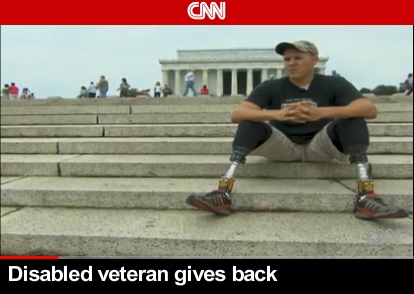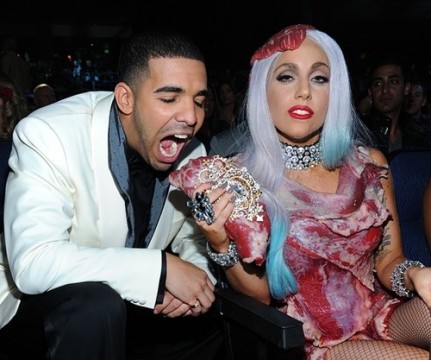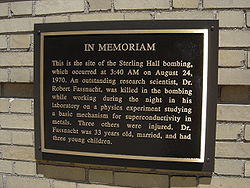A lot has been said over the years about how our media ignore heroes returning from the wars in Iraq and Afghanistan. On Friday, CNN aired an absolutely fabulous piece about Dale Beatty. “In 2004, at the age of 26, Dale’s vehicle hit a land mine in northern Iraq and at that moment, Dale’s life was about to change forever,” said Kyra Phillips on “CNN Newsroom.” “I met Dale when we were partnered together in the Fisher House Golf Tournament. Fisher House provides free lodging for military families receiving treatment for war injuries,” she continued. “And it was then that Dale told me about his charity, Purple Heart Homes. Vets helping vets from every war, from building awareness to building ramps.” Try to watch the following fabulous story without shedding a tear (videos follow with transcript and commentary): KYRA PHILLIPS, ANCHOR: August 7th, 1782, George Washington established the Purple Heart, a badge of military merit declaring, quote, “Let it be known that he who wears the military order of the Purple Heart has given of his blood in the defense of his homeland and shall forever be revered by his fellow countryman.” Now I’d like to introduce you to one such man who not only wears that Purple Heart badge of honor, but Sergeant Dale Beatty lives it. In 2004, at the age of 26, Dale’s vehicle hit a land mine in northern Iraq and at that moment, Dale’s life was about to change forever. I met Dale when we were partnered together in the Fisher House Golf Tournament. Fisher House provides free lodging for military families receiving treatment for war injuries. And it was then that Dale told me about his charity, Purple Heart Homes. Vets helping vets from every war, from building awareness to building ramps. CNN photojournalist Jay McMichaels shows us how Dale Beatty is “Making His Mark.” (BEGIN VIDEOTAPE) DALE BEATTY, U.S. ARMY VETERAN & CEO OF PURPLE HEART HOMES: I’m Staff Sergeant Dale Beatty, retired from North Carolina. Playing drums in my band today, Southern Fried. Hopefully we’re going to rock these other bands off the stage. (MUSIC PLAYING) BEATTY: A big part of getting back to living is doing therapy. I had to start playing drums again because I had done that before. (MUSIC PLAYING) BEATTY: Purple Heart Homes is a 501(c)(3) public charity founded by John (INAUDIBLE) and myself. We are 100 percent veteran owned and operated. We’re both combat wounded veterans. Today, we’re out here for a Vietnam veteran, Kevin Smith, who is looking at some decreased mobility in the near future due to injuries received in the line of duty. KEVIN SMITH, VIETNAM VETERAN: I have had 14 surgeries on my right knee with three total knee replacements. I have had eight operations on my elbow with two total elbow replacements. I have had three back operations with steel plates and rods put in my back. BEATTY: And what we’re doing here is building him an accessible ramp and a nice deck where he can get into his house. Coming down from his driveway, he has steps with no handrails, and he’s looking at probably being in a wheelchair very soon. SMITH: I mean, it’s difficult for me to even do yard work. PAUL COCKERHAM, U.S. MARINE VETERAN: When I heard about the project, I asked if anybody had volunteered for the landscaping. The answer was no, so I volunteered. I believe in the mission of Purple Heart Homes, and I just wanted to be a part of it. I’m hoping Purple Heart Homes can gain a foothold and spring good to the wounded veterans. BEATTY: This is probably about I’d say 60 hours of volunteer labor to get us to this point. Why don’t I make it rough on you, give you that one. BEATTY: This will be done today or tomorrow and hopefully we can move inside Mr. Smith’s house where he has even greater need for accessibility with his bathroom. This is my office right here. Steve Jobs would like that, wouldn’t he? But most of our calls are really not veterans looking for something to be done for them but veterans that want to say, “Hey, I want to contribute my time or effort or my business specialty to what you guys are doing.” SMITH: Dale Beatty is a true hero, and to see the sacrifices that he’s made for our country and then turn around and say thank you and to help other people that are not as fortunate as some, it’s overwhelming. (MUSIC PLAYING) (END VIDEOTAPE) PHILLIPS: Now, Dale Beatty joins us live from Charlotte, North Carolina. Good to see you, Dale. BEATTY: Good to see you, Kyra. PHILLIPS: Let’s talk a little about – before we talk a little bit about your organization — your connection to these Korean vets, these Vietnam vets — because when we first met, you talked more about them, and then you talked a lot about the guys in Iraq and the guys coming back from Afghanistan. What is it about the connection you have with these guys? What brings you and these guys together from — because you’re from totally different wars, totally different generations? BEATTY: Well, first of all, it’s really a strong relationship with the military and my family. I have Korean, Vietnam, World War II veterans in my family, and even some from world war I and before. So, it’s really important to me that my children respect that generation of veterans, and we call them the Greatest Generation, World War II. So, it’s just important for me. It’s what our country has been established on. It’s the people who went overseas and fought and came back and built this country to what it is today. PHILLIPS: And can I ask you what you’ve learned from those family members and what you’ve learned from those older vets so when you went over to Iraq, did you remember what they had taught you, told you? What stuck in your heart and your mind as a young soldier? BEATTY: Really as a young soldier I didn’t think about those older guys until I actually went to war. And dealing with what I had to deal with, I look back to what my grandfather dealt with in World War II, and some of the things he told me we never even came close to the hardship he endured. So I guess, really, some of the stories he told me when my guys would start whining in Iraq, I’d say, “Look, my grandpa was gone for four years and he never came home, and here we have Internet. We have nothing to complain about.” That’s the main thing I learned is not to complain. From those guys. PHILLIPS: That’s what’s interesting. I mean, you lost both your legs when that land mine hit your vehicle. Yet you say you have no reason to complain. BEATTY: Well, there’s always somebody worse, and even from the people getting hurt like this for hundreds of years, defending for the same values, defending the freedoms of this nation. You know, here on American soil and overseas. So, it’s a no-brainer. PHILLIPS: Tell me what you need, because we want to get the word out right now about Purple Heart Homes, and we’re going to put up the web site Purple Heart Homes North Carolina. It’s phhnc.org. Tell me what you need. I know you need financial support to keep this going. Do you need volunteers? And also, as we do ask for people to contribute and help build your fund, we saw what you were doing for one Vietnam vet, building that handicapped ramp so he can get in and out ever his house easily and get around his house easily. But tell us what this money will go towards and why you need more support, Dale. BEATTY: Well, we need more support because we’re just — I believe we just really scratched the surface with what the project you saw with Kevin Smith. We have eight more candidates, and not all of them are meeting our criteria for us to help them. So, really if people want to contribute to us in general they can go to our Web site and make a donation. That would be great. Or they can e-mail us if they’re local here and tell us how they want to support, be it through their business that they have or just volunteer labor. That’s really what we need. And also really I want for people — what I need from people is to really think about how much the private sector can do for these veterans who are still out there from Vietnam. The government can’t do everything, and that’s why we created Purple Heart Homes because the private sector and the local communities can take better care of people that are next door and in their own backyards than somebody from 600 miles away. PHILLIPS: Amen. BEATTY: So, we really need people to step up and even if they’re not helping Purple Heart Homes, go shake a veteran’s hand and tell them thank you. PHILLIPS: Well, I tell you what. It was always an honor to shake your hand, not just because you beat me on the golf course, and I was very impressed but you’re a remarkable human being, Dale. BEATTY: Thanks, Kyra. PHILLIPS: Also Southern Pride (sic), your band, maybe somebody — a record producer will spot you guys out and you can cut a CD and put that money toward the organization. BEATTY: And that would be great, too. PHILLIPS: That would be a double whammy. You’re a heck of a drummer. Dale Beatty, great to see you. Have a fabulous weekend. BEATTY: Thank you, Kyra. You too. How marvelous. Brava Kyra, bravo Jay, and God bless you Dale Beatty.

The rest is here:
CNN Features Disabled Iraq War Hero Selflessly Assisting Other Injured Veterans





























